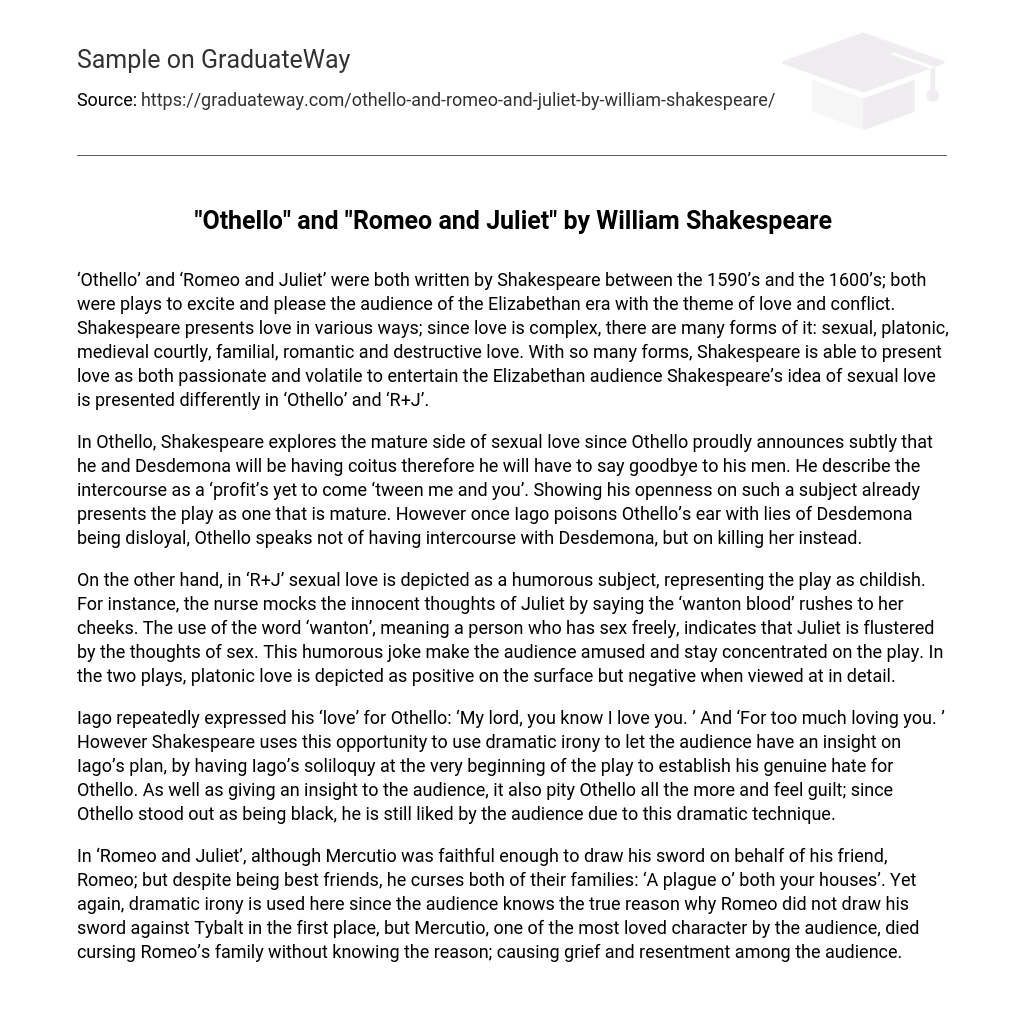‘Othello’ and ‘Romeo and Juliet’ were both written by Shakespeare between the 1590’s and the 1600’s; both were plays to excite and please the audience of the Elizabethan era with the theme of love and conflict. Shakespeare presents love in various ways; since love is complex, there are many forms of it: sexual, platonic, medieval courtly, familial, romantic and destructive love. With so many forms, Shakespeare is able to present love as both passionate and volatile to entertain the Elizabethan audience Shakespeare’s idea of sexual love is presented differently in ‘Othello’ and ‘R+J’.
In Othello, Shakespeare explores the mature side of sexual love since Othello proudly announces subtly that he and Desdemona will be having coitus therefore he will have to say goodbye to his men. He describe the intercourse as a ‘profit’s yet to come ‘tween me and you’. Showing his openness on such a subject already presents the play as one that is mature. However once Iago poisons Othello’s ear with lies of Desdemona being disloyal, Othello speaks not of having intercourse with Desdemona, but on killing her instead.
On the other hand, in ‘R+J’ sexual love is depicted as a humorous subject, representing the play as childish. For instance, the nurse mocks the innocent thoughts of Juliet by saying the ‘wanton blood’ rushes to her cheeks. The use of the word ‘wanton’, meaning a person who has sex freely, indicates that Juliet is flustered by the thoughts of sex. This humorous joke make the audience amused and stay concentrated on the play. In the two plays, platonic love is depicted as positive on the surface but negative when viewed at in detail.
Iago repeatedly expressed his ‘love’ for Othello: ‘My lord, you know I love you. ’ And ‘For too much loving you. ’ However Shakespeare uses this opportunity to use dramatic irony to let the audience have an insight on Iago’s plan, by having Iago’s soliloquy at the very beginning of the play to establish his genuine hate for Othello. As well as giving an insight to the audience, it also pity Othello all the more and feel guilt; since Othello stood out as being black, he is still liked by the audience due to this dramatic technique.
In ‘Romeo and Juliet’, although Mercutio was faithful enough to draw his sword on behalf of his friend, Romeo; but despite being best friends, he curses both of their families: ‘A plague o’ both your houses’. Yet again, dramatic irony is used here since the audience knows the true reason why Romeo did not draw his sword against Tybalt in the first place, but Mercutio, one of the most loved character by the audience, died cursing Romeo’s family without knowing the reason; causing grief and resentment among the audience.





